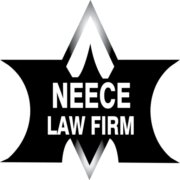Best Landlord & Tenant Lawyers in North Carolina
Share your needs with us, get contacted by law firms.
Free. Takes 2 min.
Free Guide to Hiring a Real Estate Lawyer
Or refine your search by selecting a city:
List of the best lawyers in North Carolina, United States
United States Landlord & Tenant Legal Questions answered by Lawyers
Browse our 2 legal questions about Landlord & Tenant in United States and read the lawyer answers, or ask your own questions for free.
- What is owner of condo units obligation as far as damage to the condo below their unit.
- The unit above my condo is managed by a Property Management company, and it was rented. During the time it was rented, there were water leaks that damaged my ceilings, and the Management Company. refuses to fix the ceiling so that it matches the rest of the ceiling. Even though... Read more →
-
Lawyer answer by Horus Legal Sulotion
Thank you for sharing the details of your situation. Based on the circumstances you described, you may have grounds to escalate the matter legally. You can file a case to request the appointment of a government engineer from Dubai Municipality...
Read full answer - How to protect property from squatters law
- Deed in my mom's name. She died 18 years ago. Son is named as administrator but not as owner. We live in USA so let Non relative live there for 45-50 year but had no formal contract. Let him live there free as long as he paid utilities and taxes.... Read more →
-
Lawyer answer by M BILAL ADVOCATES, CORPORATE & TAX CONSULTANTS
After completing probate to establish yourself as the legal heir, you can transfer the property title to your name and then grant them permission to reside there through a formal agreement. It is worthy to note that you can do...
Read full answer
About Landlord & Tenant Law in North Carolina, United States
Landlord and tenant law in North Carolina governs the rights and responsibilities of individuals who rent property, whether they are tenants or landlords. These laws cover everything from rental agreements to eviction procedures and aim to create a fair and balanced relationship between both parties. North Carolina statutes and court decisions provide detailed rules for the leasing process, including how to handle deposits, required disclosures, and resolving disputes. Being familiar with these laws helps both landlords and tenants maintain a productive and lawful rental experience.
Why You May Need a Lawyer
Legal assistance in landlord and tenant matters can be crucial in a variety of scenarios. Here are some of the most common reasons you might need a lawyer:
- You are facing eviction or need to evict a tenant
- There is a dispute over the return of your security deposit
- A landlord is failing to make necessary repairs that affect your health or safety
- Housing discrimination issues have arisen
- You believe your rental agreement has been broken or is unfair
- You are being harassed or are experiencing privacy violations
- Property damage has occurred and responsibility is unclear
- You are unsure about signing or drafting a lease agreement
- There are allegations of illegal activity at your rental property
- Your landlord is suddenly raising the rent or trying to change your lease mid-term
A lawyer can help protect your interests, clarify your legal standing, and represent you in court or negotiations, ensuring you get a fair outcome.
Local Laws Overview
Landlord and tenant laws in North Carolina are primarily outlined in Chapter 42 of the North Carolina General Statutes. Here are some key aspects:
- Rental Agreements: Agreements can be oral or written, but a written lease offers more protection and clarity about terms and conditions.
- Security Deposits: North Carolina limits security deposit amounts and requires landlords to return deposits within 30 days after the tenant moves out, with an itemized list of any deductions.
- Repairs and Habitability: Landlords must keep properties safe and habitable. They are responsible for issues with plumbing, electricity, heating, and structural integrity.
- Notice Requirements: Landlords must provide proper notice before entering the property or ending a lease. Tenants must also give notice if they plan to move out.
- Eviction: Evictions must follow the legal process, beginning with a written notice. Common grounds include nonpayment of rent, violation of lease terms, or illegal acts on the premises.
- Prohibited Actions: Landlords cannot lock tenants out, shut off utilities, or seize property without a court order.
- Retaliation: It is illegal for landlords to retaliate against tenants for requesting repairs or complaining to authorities.
Understanding these local rules is essential for anyone renting property in North Carolina, as failure to comply can result in legal consequences.
Frequently Asked Questions
What is the maximum security deposit a landlord can charge in North Carolina?
For month-to-month leases, the maximum is one and one-half months’ rent. For longer leases, it is two months’ rent. For week-to-week leases, it is two weeks’ rent.
How quickly must a security deposit be returned after move-out?
Landlords must return the security deposit, minus any valid deductions, within 30 days of the tenant vacating the property. An interim notice is due at 30 days with final payment within 60 days if needed.
Can my landlord enter my rental unit without my permission?
Landlords generally need to provide reasonable notice before entering, except in emergencies. Most leases specify a notice period, often 24 hours.
What can I do if my landlord refuses to make repairs?
Tenants may provide written notice requesting repairs. If landlords do not act, tenants may be able to pursue remedies through the courts or contact local housing authorities.
How much notice must be given before ending a month-to-month lease?
Either party must give at least 7 days’ written notice before terminating a month-to-month lease.
What is the legal process for eviction in North Carolina?
Landlords must give written notice and file a summary ejectment action in court. A court hearing and judgment will determine if eviction is allowed. Self-help evictions are not allowed.
Can a landlord increase rent during the lease term?
In a fixed-term lease, rent cannot be raised until the lease expires unless the lease allows it. In periodic leases, rent can be increased with proper notice, typically the same as the notice to end the lease.
What should I do if I believe I am being discriminated against?
You may file a complaint with the North Carolina Human Relations Commission or the U.S. Department of Housing and Urban Development. Discrimination based on race, religion, sex, disability, or other protected classes is unlawful.
Is there a grace period for paying rent?
North Carolina law gives a five-day grace period for payment of rent before a landlord can charge late fees or start eviction proceedings.
Can a landlord charge non-refundable fees?
North Carolina law does not specifically prohibit non-refundable fees, but any amounts that are considered deposits must be treated under the state’s security deposit rules.
Additional Resources
Here are some helpful resources for landlord and tenant issues in North Carolina:
- North Carolina General Statutes - Chapter 42 (Landlord and Tenant Law)
- North Carolina Department of Justice - Consumer Protection Division
- Legal Aid of North Carolina
- North Carolina Housing Coalition
- North Carolina Real Estate Commission
- Local county or city housing authorities
These organizations provide information, mediation services, and legal assistance to both tenants and landlords.
Next Steps
If you are involved in a landlord or tenant dispute or simply need guidance about your rights, consider the following steps:
- Document all communications and issues with your landlord or tenant
- Review your lease or rental agreement carefully
- Consult the relevant statutes and resources listed above
- Contact a qualified attorney for an initial consultation
- If you cannot afford an attorney, reach out to Legal Aid or local housing authorities for help
- Prepare any necessary documentation if you need to defend your case in court
Legal issues involving rented property can be complex. Seeking professional advice early on is often the best way to protect your interests and resolve conflicts effectively.
Lawzana helps you find the best lawyers and law firms in North Carolina through a curated and pre-screened list of qualified legal professionals. Our platform offers rankings and detailed profiles of attorneys and law firms, allowing you to compare based on practice areas, including Landlord & Tenant, experience, and client feedback.
Each profile includes a description of the firm's areas of practice, client reviews, team members and partners, year of establishment, spoken languages, office locations, contact information, social media presence, and any published articles or resources. Most firms on our platform speak English and are experienced in both local and international legal matters.
Get a quote from top-rated law firms in North Carolina, United States — quickly, securely, and without unnecessary hassle.
Disclaimer:
The information provided on this page is for general informational purposes only and does not constitute legal advice. While we strive to ensure the accuracy and relevance of the content, legal information may change over time, and interpretations of the law can vary. You should always consult with a qualified legal professional for advice specific to your situation.
We disclaim all liability for actions taken or not taken based on the content of this page. If you believe any information is incorrect or outdated, please contact us, and we will review and update it where appropriate.
Browse landlord & tenant law firms by city in North Carolina
Refine your search by selecting a city.













